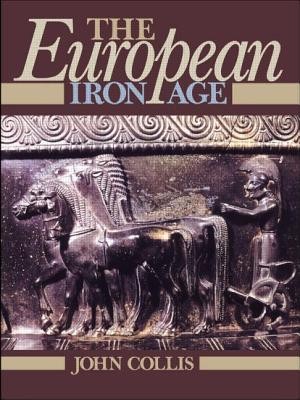
- We will send in 10–14 business days.
- Author: John Collis
- Publisher: Routledge
- ISBN-10: 0415151392
- ISBN-13: 9780415151399
- Format: 19 x 24.7 x 1.5 cm, softcover
- Language: English
- SAVE -10% with code: EXTRA
Reviews
Description
This ambitious study documents the underlying features which link the civilizations of the Mediterranean - Phoenician, Greek, Etruscan and Roman - and the Iron Age cultures of central Europe, traditionally associated with the Celts. It deals with the social, economic and cultural interaction in the first millennium BC which culminated in the Roman Empire.
The book has three principle themes: the spread of iron-working from its origins in Anatolia to its adoption over most of Europe; the development of a trading system throughout the Mediterrean world after the collapse of Mycenaean Greece and its spread into temperate Europe; and the rise of ever more complex societies, including states and cities, and eventually empires.
Dr Collis takes a new look at such key concepts as population movement, diffusion, trade, social structure and spatial organization, with some challenging new views on the Celts in particular.
EXTRA 10 % discount with code: EXTRA
The promotion ends in 18d.17:22:08
The discount code is valid when purchasing from 10 €. Discounts do not stack.
- Author: John Collis
- Publisher: Routledge
- ISBN-10: 0415151392
- ISBN-13: 9780415151399
- Format: 19 x 24.7 x 1.5 cm, softcover
- Language: English English
This ambitious study documents the underlying features which link the civilizations of the Mediterranean - Phoenician, Greek, Etruscan and Roman - and the Iron Age cultures of central Europe, traditionally associated with the Celts. It deals with the social, economic and cultural interaction in the first millennium BC which culminated in the Roman Empire.
The book has three principle themes: the spread of iron-working from its origins in Anatolia to its adoption over most of Europe; the development of a trading system throughout the Mediterrean world after the collapse of Mycenaean Greece and its spread into temperate Europe; and the rise of ever more complex societies, including states and cities, and eventually empires.
Dr Collis takes a new look at such key concepts as population movement, diffusion, trade, social structure and spatial organization, with some challenging new views on the Celts in particular.


Reviews